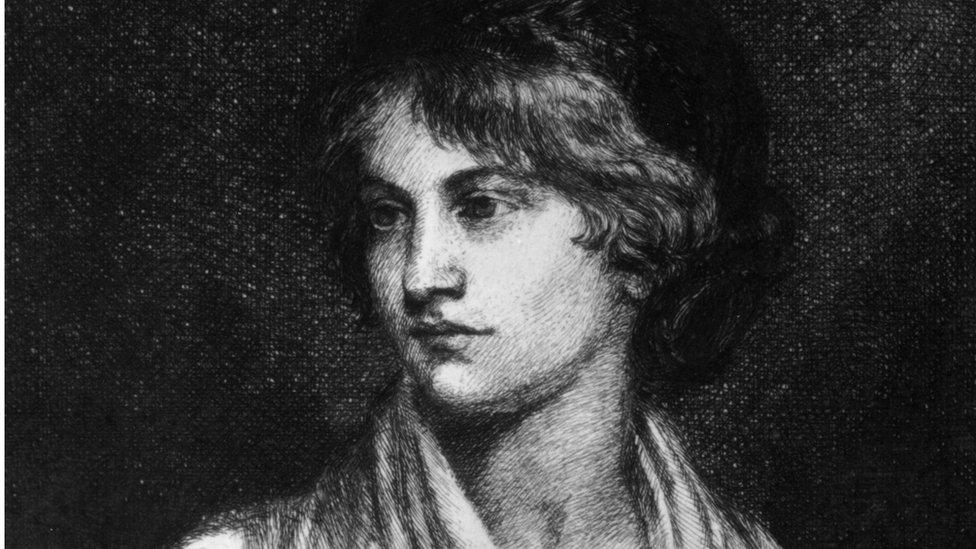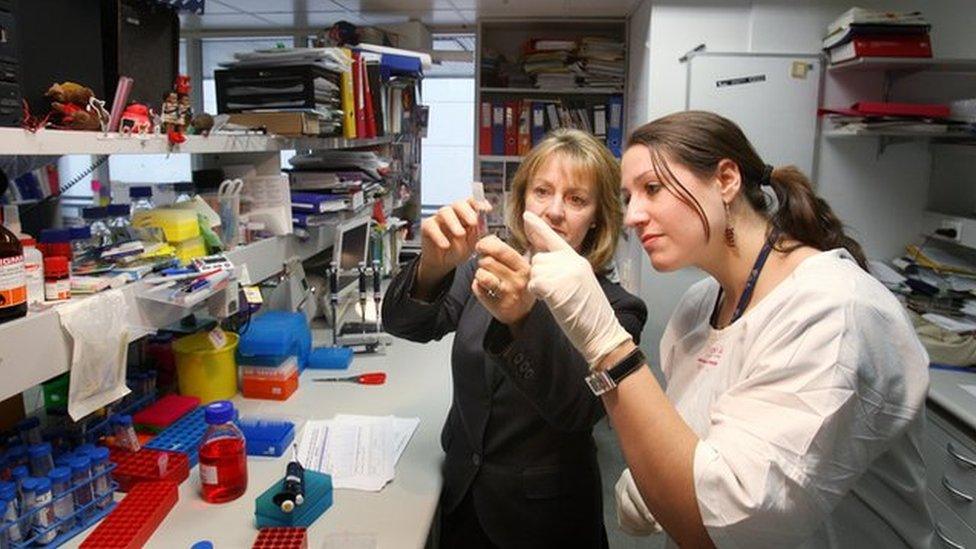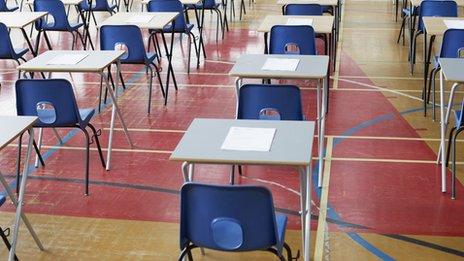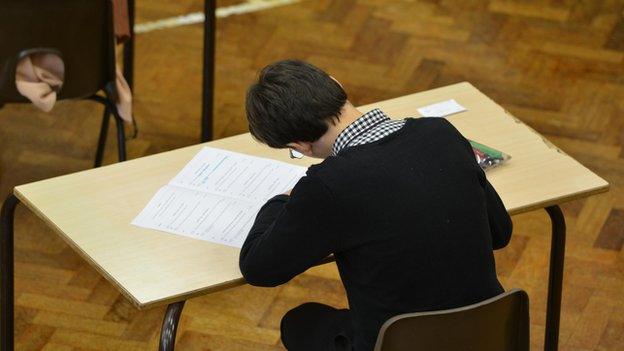Call for more females in the curriculum
- Published

Mary Wollstonecraft, author of A Vindication of the Rights of Woman, was the sole feminist thinker in the draft syllabus
Women should be more visible across the curriculum, say campaigners who successfully fought plans to leave feminism out of A-level politics.
England's Schools Minister Nick Gibb announced a change of heart after an outcry over the lack of female thinkers in the draft politics syllabus.
"We've seen the strength of feeling," said Mr Gibb.
Science campaigner Jacquelyn Guderley said: "This should act as a springboard for more female role models."
Ms Guderley, co-founder of the Stemettes group, which encourages girls into science, maths and engineering careers, said there should be more female representation "across the board, particularly in science, technology, engineering and maths".
"You can't be what you can't see, which is why including varied female role models across all subjects is of crucial importance."
'Core ideas'
TUC general secretary Frances O'Grady said there was still a long way to go before women were fully represented across the curriculum.
"Women's achievements are under-represented and undervalued in a wide range of subjects from history to English literature," said Ms O'Grady.
In a House of Commons debate on Monday, Mr Gibb admitted the government had not properly recognised the role of female political thinkers in its draft plans for politics A-level.
He said the final content of the A-level politics course would give students "the opportunity to study the core ideas of feminism".
Exam boards were already making changes to the final syllabus, he said.

More women role models are needed across the curriculum, argue campaigners
The original proposals, external, announced late last year, included three core political ideologies: socialism, liberalism and conservatism - but feminism was dropped as a named topic.
Education Secretary Nicky Morgan, who is also equalities minister, intervened personally to make the change after a consultation on the plans revealed widespread opposition, said Mr Gibb.
Mary Wollstonecraft - author of A Vindication of the Rights of Woman - had been the sole feminist voice in the draft proposals but the final content would include names such as Simone de Beauvoir, Hannah Arendt and Rosa Luxemburg, he suggested.
"We recognise that the work of female political thinkers was not given due weight in the draft content and the final content will set out clearly those female political thinkers whose work should be studied."
'Great news'
Opposition to the original plans was kickstarted by a petition , externalset up by student June Eric-Udorie. The petition gained more than 46,000 signatures.
"It's great news! It's a victory!" wrote Ms Eric-Udorie on change.org, external.
"Removing women and feminism from the syllabus would have been an insulting move.
"Women have and will continue to contribute to their societies and their contributions must be recognised and seen for how valuable they are.
"I am pleased to say that they will be returned to where they rightfully belong."
In December a separate campaign, external to include women composers in the music A-level syllabus resulted in exam board Edexcel adding compositions by female composers including Clara Schumann, Rachel Portman and Kate Bush to the final syllabus.
The draft new syllabus had not included "even one female composer", according to student Jessy McCabe, who set up the petition.
A Department for Education spokesman said recent updates to the curriculum had boosted the number of women being studied, particularly in history, music, politics and science, while citizenship education also included sections on feminism.
"It is vital pupils are exposed to a curriculum and qualifications promoting equality and the achievements of women," said the spokesman.
"Our new curriculum sets out the essential knowledge and frees teachers to develop lessons that will excite and inspire pupils about key figures such as the Suffragettes, Rosa Parks, Jane Goodall or Marie Curie."
- Published5 August 2015

- Published27 March 2015
